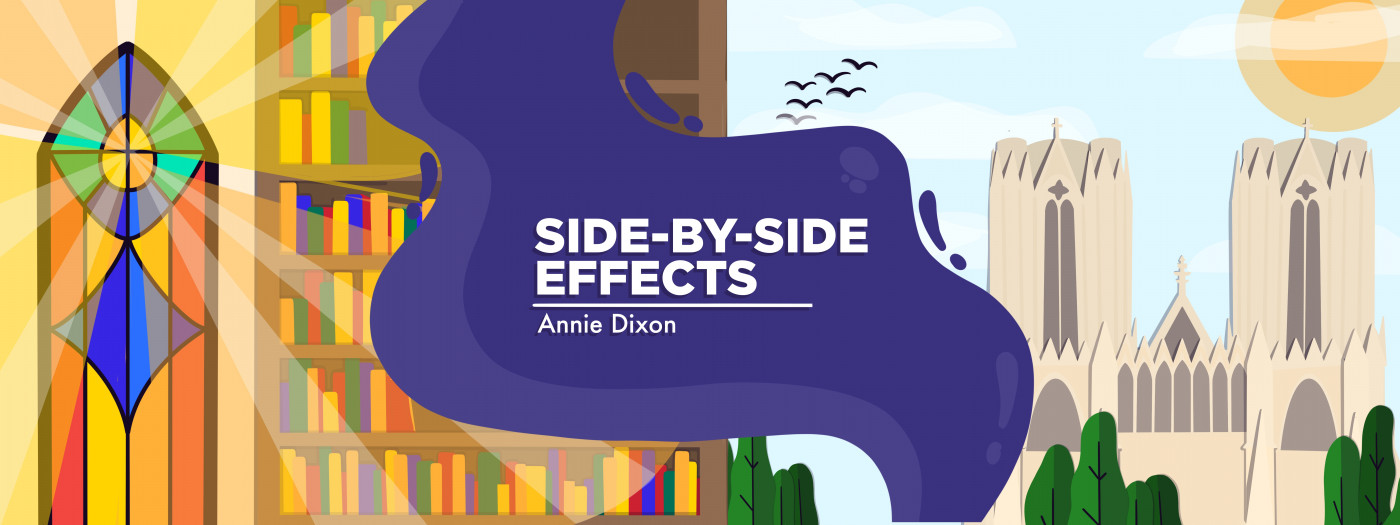What Did We Do to Deserve This?
Written by |

Our phone call was winding down. “So, what else is new?” Mom and I asked each other. We used to have answers to this question. News, even. But for the past year and a half, nothing is new. Neither of us has gone anywhere, met anyone, or done much of anything.
Mom hibernated in her retirement community during the pandemic. My sister lives nearby and checks on her regularly. The hubby and I are maintaining on the other side of the mountain. The extended family stretches over a few states and has been staying put. Our social life exists on social media or not at all.
A cloud had been hanging over us all but the storm had not hit. Until last week. Suddenly, the pandemic got personal, and I had news for Mom: One of our own got COVID-19. My husband’s daughter was down with the disease. Mom expressed the proper shock and concern, followed by heartfelt thoughts and prayers. Then, ever so poignantly, she asked: Was she vaccinated?
Huh. No, actually, I replied, feeling just a bit awkward about it. There was something odd about the question, and the fact that everyone seems to be asking it whenever they hear of someone contracting the illness.
Good intentions and ulterior motives
My husband and I have always been rather private people. But when he was diagnosed with aHUS, we had to confide in some family, friends, and colleagues in order to explain our absence. Besides, we wanted their thoughts and prayers — and the occasional covered-dish casserole — while he recuperated.
Everyone was indeed shocked and concerned. They asked how he felt, what they could do, how I was holding up. Then, gingerly, they asked about the disease: What was it, how did he get it, was it contagious or genetic, or had he been exposed to some dangerous substance?
I noticed the second set of questions was not really about us. Those inquiries were about healthy people seeking reassurance that they wouldn’t come down with a rare disease. And they weren’t about getting answers, they were about getting the answer they wanted. His closest relatives never asked if they should be tested for the genetic marker because they didn’t want to know. Everybody wanted to know how this condition had been invited into our lives so that they could be sure it would never happen to them.
Bad luck or bad judgment
We all do this all the time: “His cancer is not really surprising; he smoked for years.” “Of course they got divorced; everyone knew she was sneaking around.” “He’s lucky he only lost his job; his boss could have had him arrested for pilfering the inventory.” “The car is totaled and she broke her leg, but what do you expect? She was on her cellphone when the accident happened.”
Other people have a lot of bad luck. But it will never happen to us, as long as we don’t smoke, cheat, steal, or otherwise fail to follow the rules, right? If we can avoid the cause we assign to the misfortune of others, we can convince ourselves that we are protected.
Having a rare disease with no single cause or risk factor is unfair and frightening — not only for the patient, but also for every healthy person intertwined with that life and circumstance. Nobody knows where it came from or who fate will target next. It brings randomness and uncertainty into everyone’s safe and structured little lives.
Lately, the whole world is dealing with a mysterious new disease. The stakes seem high, but the risks are relatively low —unless what you really fear is a chronic case of acknowledging the vulnerability of the human condition.
***
Note: aHUS News is strictly a news and information website about the disease. It does not provide medical advice, diagnosis, or treatment. This content is not intended to be a substitute for professional medical advice, diagnosis, or treatment. Always seek the advice of your physician or other qualified health provider with any questions you may have regarding a medical condition. Never disregard professional medical advice or delay in seeking it because of something you have read on this website. The opinions expressed in this column are not those of aHUS News or its parent company, Bionews, and are intended to spark discussion about issues pertaining to aHUS.







Linda Grollman
I was diagnosed with aHUS 3-4 yes ago. Would it be beneficial for close family members to have testing. I.E. DNA markers??? My daughter, grandchildren etc.
Annie Dixon
As patients, families, and our doctors learn more about the disease and its treatment (and maybe even its prevention in the future), I think it is beneficial to all of us to have these conversations. The big follow up question is: how would you, your relatives, or medical research be empowered by the test results? These are important questions, and the answers are very personal. I don't have easy answers for anyone but I ask our doctors lots of hard questions and I would encourage you to as well.